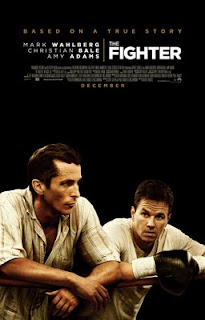Horrible Bosses (2011)
Dir. Seth Gordon
3 out of 5
Horrible Bosses feels like a sign of the times – the wage-earner’s revenge fantasy against the incompetent and ineffective economic elite keeping an increasingly desperate grasp on their power as prosperity disappears. Indeed, when an out-of-work acquaintance casually admits that he’d “like to kill those Lehman Brothers” to the film’s put-upon triumvirate - an overworked corporate minion (Jason Bateman) under a sadistic senior officer (Kevin Spacey), a chemical plant foreman (Jason Sudekis) taking orders from his former boss’s cocaine-addicted son (Colin Farrell), and a meek dental hygienist (Charlie Day) intimidated and harassed by his oversexed supervisor (Jennifer Aniston) – an idea begins to gestate. New jobs are too scarce for these guys to just up and quit their current ones, so they hire a “murder consultant” (Jamie Foxx) who will teach them how to do their own downsizing.
A lot of comedies tend to peter out after highly involved set-ups like this, but Horrible Bosses bucks the trend with a constantly-evolving plot that re-drafts the premise two or three times over the course of the movie. By no means haphazard, it’s closer to what might happen when three men with limited and specific knowledge step outside the areas of their expertise. Can they afford a hitman? What about reconnaissance? If they do the deeds themselves, shouldn’t they murder each other’s bosses to eliminate easy motives? This is where Bosses sheds any suggested pretense of timeliness (which probably wasn’t ever a key story consideration) and maintains its tack as an enjoyably evergreen “take this job and shove it” farce.
Day steals the movie with his ingratiatingly funny childlike demeanor, at once crazily enthusiastic about the group’s ad hoc solution and genuinely powerless to pull off such dark schemes. Bateman shows why he is Hollywood’s go-to straight man. Sudekis’ is the only character that seems off-key, imbued with an inexplicable womanizing prowess that borders on the predatory. His head might be next if he ever becomes the boss. It must also be said that Farrell and Foxx are transitioning nicely into supporting roles after their own ill-fated dalliances with stardom (with exceptions, of course; it’s all about getting the right part).
Seth Gordon, who first garnered attention for the excellent documentary The King of Kong, has become something of a specialist in capturing manic-obsessive behavior. He is sometimes guilty of juvenilizing these matters, as with the sexual harassment subplot in Bosses. But at least the movie doesn’t traffic in easy fixes to the kinds of psychological issues that affect both the bosses and their subordinates. On the contrary, there’s a certain weariness in the characters’ duplicity that makes the movie endearing, as if it’s normal procedure no matter who’s in charge. To quote Pete Townsend: “Meet the new boss, same as the old boss.”








